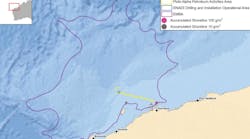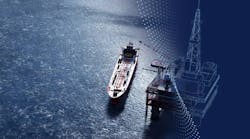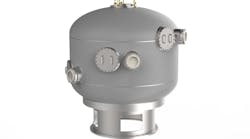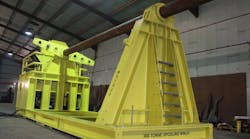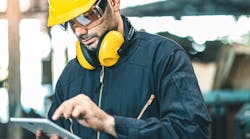Editor's note: This story first appeared in the November-December 2022 issue of Offshore magazine's first annual Offshore Oil and Gas Executive Perspectives Special Report.
By Stewart Maxwell, Aquaterra Energy
Headwinds exacerbated by the war in Ukraine and a spiraling energy price crisis globally have presented a major opportunity for new energy-rich regions as countries cast the net wide to meet oil and gas needs. However, the complexity of new projects may exceed the local manufacturing, logistics and installation capabilities in these regions with less oil and gas heritage.
Lean, efficient and innovative offshore engineering methods are the main solution to turbocharge social and economic development across markets, from APAC to West Africa to South America. In addition to this, they provide a blueprint for a smarter, more agile future for the offshore industry at large.
Historical energy trading relations and existing pipelines between Europe and Africa mean the continent is perfectly poised to capitalize on these extant opportunities. However, this will require an unprecedented race for offshore construction as production capacity, training and infrastructure are still developing. Some key countries may lack the large construction yards, ports and installation equipment needed to construct, carry and assemble conventional offshore oil and gas platforms.
Addressing this will require a revolution in lean engineering that fast tracks offshore construction and maximizes the use of existing and in-country resources. Lean engineering innovations from mobile offshore production units (MOPUs) to minimum facility platforms could significantly improve the project economics of field developments in regions, such as West Africa, that have many smaller and shallow-water fields. For example, new minimalist, modular designs can be scaled from monopiles for small fields with one or two wells to conductor or jacket supported platforms for extra capacity. These modular, lightweight platforms can be rapidly manufactured, transported and assembled with small yards and minimal facilities.
Lean platforms can be entirely manufactured using existing facilities in-country, assembled in a local quayside and installed using local assets. Recent projects to increase gas production in West Africa show how smart offshore platform designs can accelerate production while utilizing local resources and content.
Aquaterra Energy worked with a local operator in the Niger Delta harnessing lightweight, low-cost, locally fabricated platforms to allow oil and gas production to start during construction and accelerate time to first oil by six months. By taking a modular approach to offshore design, it enables phased installation, allowing production to commence during construction.
However, it’s not only larger fields that can reap benefits. Production can even be accelerated in smaller fields where fixed platforms are unviable, through innovations such as installing wellbay modules on the hulls of MOPUs, which removes the need for any platform. These principles can be applied more widely across the industry to increase efficiency, reduce carbon emissions and, ultimately, improve the margins of offshore developments.
There is an urgent need for innovations capable of maximizing the speed and cost efficiency of production at new fields in emerging economies, including small, shallow-water sites, yet this will require innovations capable of maximizing the speed and cost-efficiency of production in emerging markets. The industry cannot afford to sit and wait for large, costly and complex fossil fuel projects or renewable developments with multi-year timescales. Regions, such as West Africa, with abundant, accessible offshore energy reserves, are ideally positioned to step into the breach.
The key is to apply the principles of lean engineering to offshore energy holistically and create minimalist, modular field development solutions that are designed for in-country fabrication, installation and maintenance with local resources. This could help to efficiently plug the looming gap in energy supply and offer a sustainable path to economic progress and energy autonomy for markets across the world.
About the author: Stewart Maxwell is technical director with Aquaterra Energy.

